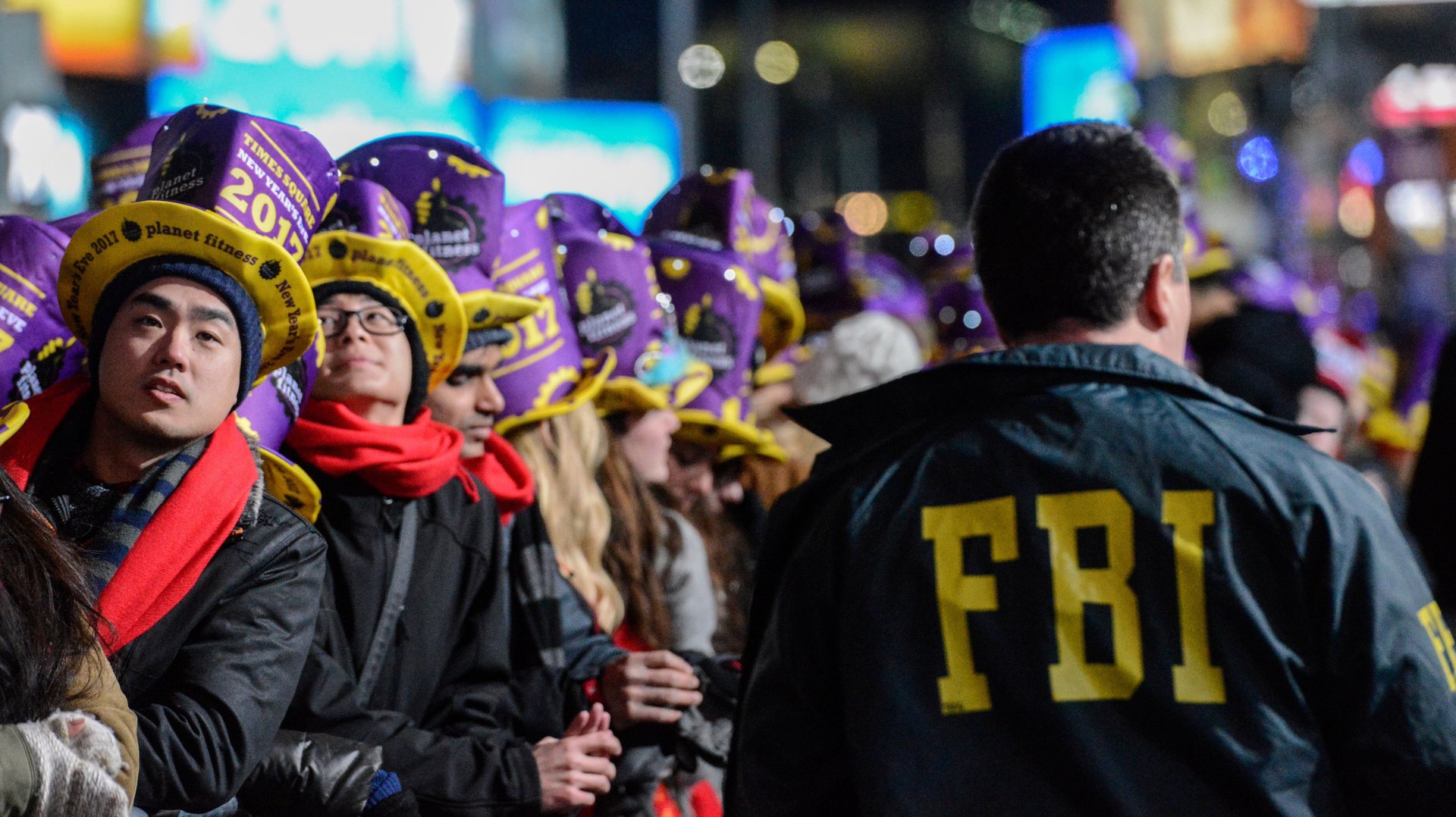The FBI is doubling its ad budget because it can’t attract enough new agents
The tight US job market is making it hard for the FBI to fill its ranks. And now it will spend more than a million dollars to advertise its openings for special agents.


The tight US job market is making it hard for the FBI to fill its ranks. And now it will spend more than a million dollars to advertise its openings for special agents.
Applicants for the agency’s signature position dropped from a peak of 68,500 in 2009 to 11,500 last year, according to the Wall Street Journal. Bureau officials recently told the Journal they need roughly 16,000 applications to net 900 new agents, a number the FBI says it has not met for “several” years.
The FBI will ease certain requirements to expand the pool of potential recruits. And it will double the amount it spends on advertising this year, up from the $600,000 it did in 2018,
The agency could spend more if additional funds become available, FBI official Peter Sursi tells Quartz.
“That [$600,000] was for everything: the website, all events, all national advertising, creative and materials,” says Sursi, chief of the Recruiting, Selection and Staffing Section of the bureau’s Human Resources Division. “Even now, we’re only spending about $1.2 million,” he adds, including the cost of recruiting events.
It’s difficult to compare the FBI’s advertising budget against other government agencies like the National Security Agency and the Central Intelligence Agency, says Sursi, because even for the FBI, “it’s hard to find data about them.” Instead, he looks to companies like Accenture and Deloitte, comparable in size to the FBI’s overall workforce of approximately 37,000, about 13,500 of whom are agents. Most of those organizations are spending anywhere from $12 million to $26 million on advertising each year, Sursi says: “So, we know we have a ways to go. But I think we’ve been pretty efficient about how we are using our money.”
Right now, FBI recruitment-ad dollars go to a Reston, Virginia marketing agency with clients that include the Defense Intelligence Agency as well as a local massage studio.
The FBI is after applicants
The downward dive on the number of applicants since the 2009 peak shows what a daunting task the FBI faces. (The bureau has received 13,000 new applications since Oct. 1, according to the Journal.)
The requirements to become a special agent are stringent. Applicants must be US citizens, have a college degree, a few years of work experience, and “cannot have used any illegal drugs within the last 10 years or have used marijuana with the last three years,” the FBI careers site advises high school-age bureau hopefuls. “This last part still applies even if marijuana is legal in your home state.”
The FBI pays agent trainees a base salary of $49,907 during 21 weeks of training. They also earn a locality-pay boost while in the FBI academy in Quantico, Virginia, south of Washington, which comes to about 28%, plus 25% “availability pay,” a premium given to federal law-enforcement agents and officers that is, in essence, a flat rate for the year’s overtime. The salary remains the same for a two-year probationary period, adjusted for location, after which agents are put on a different salary scale; an agent in the DC-area would then receive adjusted pay of about $62,000, rising to almost $97,000 within five years.
There are some automatic disqualifiers, including anyone who has defaulted on a federally guaranteed student loan:
- Any felony conviction or a conviction for a domestic-violence misdemeanor or more serious offense
- Violation of the FBI Employment Drug Policy or failure of an FBI-administered urinalysis drug test
- Failure to register with the Selective Service System, if required
- Knowingly or willfully engaged in acts or activities designed to overthrow the US government by force
- Failure to pay court-ordered child support
- Failure to file federal, state, or local income tax returns
Then-FBI director James Comey told the 2015 graduating class at Georgetown University that he understood why students of top schools may not seek an FBI career: “If you’re as good as you probably are, because you go to school here, Coca-Cola is going to be after you, Microsoft is going to be after you, Apple is going to be after you, Exxon Mobil is going to be after you, and they’re going to throw all kinds of dough at you. And then when you’re 29, you’re thinking, ‘Yeah, not so much go work for the government.’” (The average age of an FBI recruit is 29.)
And although the FBI says its hiring issues began well before Donald Trump was elected, the constant attacks from the White House can’t be good for the bureau’s reputation. Positive impressions of the FBI have dropped among Republicans since 2017, according to polls from Pew and Gallup.
Investigating new methods
The incremental steps the FBI has so far taken in trying to hire more efficiently may seem standard to most modern businesses. Sursi says new initiatives like the FBI’s first-ever Instagram account—which Sursi expects to launch this summer—or doing a Facebook Live session, or even simply using programmatic advertising that’s targeted and geofenced to a certain area, are “definitely a very new way for FBI hiring managers across the 56 divisions to think about how they can fill their positions.”
In years past, Sursi says the FBI only wanted applicants whose personal drive would keep them attached to the process. “If you weren’t super-motivated, then we didn’t want you,” says Sursi. “I just don’t think that that’s how the current labor market works.”
Now, the FBI stays in touch with applicants to help them along through the application period.
And tomorrow?
Says Sursi, “I don’t know what the future is going to hold, but I would assume that we’re going to continue to have to innovate and develop more resources to keep fighting and scrapping for that talent.”